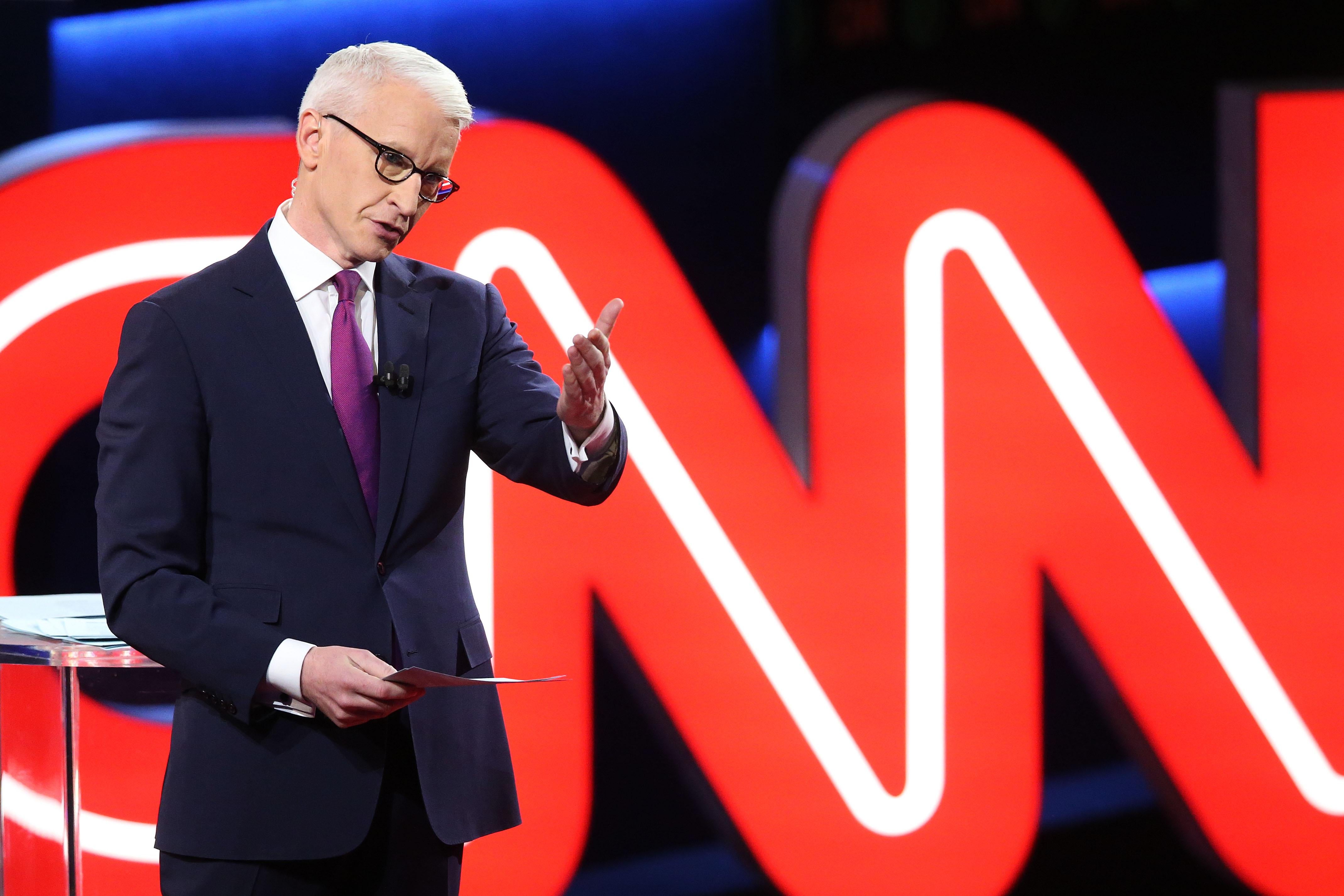John Stankey just made a big mistake. The 30-year AT&T veteran was recently placed in charge of WarnerMedia, the parent company of CNN, which means he now has the dubious privilege of being the boss of a lot of journalists.
CNN was, for obvious reasons, always going to be the most politically fraught part of AT&T’s acquisition of Time Warner, and so all eyes were on Stankey today when he appeared at a town hall with the network’s biggest star, Anderson Cooper. Cooper asked his new boss for his thoughts on editorial independence, and here, per Ed Lee of the New York Times, is how Stankey responded:
Not to put too fine a point on it, this was the Wrong Answer. The first bit is fine: Stankey is not the editor-in-chief, so it’s not up to him what gets published; he has promised, as he should, not to pressure CNN to align with AT&T’s view of any given issue.
The second part, however, is not fine at all. Editorial independence has to be an ironclad commitment. It can’t be some kind of bauble handed out for exceptional ability in the field of being fair and factual. If Stankey wants CNN to be fair and factual, that’s good and noble, and he should be very clear with CNN’s executives and senior management that fair and factual reporting is what he wants. What he must not do, however, is implicitly reserve the right to remove CNN’s editorial freedoms if and when he determines that its reporters haven’t done their jobs “the right way.”
There are two big reasons for this, one principled and one pragmatic. The principle is simple: All reporters make mistakes, and a news organization as large and fast-moving as CNN will make its share. If those mistakes are accompanied by a loss of editorial freedom, then CNN will inevitably lose its freedom at some point. Far from promising that CNN will keep its independence, Stankey is coming close here to promising CNN that it will lose its independence at some unknowable point in the future.
Then there’s Stankey’s pragmatic mistake. All good reporters annoy the subjects of their reporting, and often those subjects get very upset, and complain that the reporting in question is unfair and unprofessional. Sometimes the subjects complain to the reporter in question; sometimes they complain to the reporter’s boss; and, a lot of the time, they complain to anybody they can find at the highest levels of the organization. To own and run a news organization, then, is to be on the receiving end of a lot of complaints from powerful individuals, all of whom will argue vehemently that the organization in question is printing unfair lies.
Practically speaking, there’s only one way that an owner can respond to such complaints, which is to say that the news operation has editorial independence, and that editorial questions have to be addressed to the head of editorial, which in CNN’s case is Jeff Zucker. A good example of this took place when Elizabeth Holmes, the CEO of Theranos, complained to Rupert Murdoch, who was one of her largest investors, about an article the Wall Street Journal, which Murdoch owns, was about to publish. Murdoch has received such complaints every week for decades, and knew exactly what he had to do, which was nothing.
Stankey, by contrast, sounds like he’s given himself the job of determining whether any given piece of reporting is fair and factual. And once he has that job, he’s going to find it very hard to shirk the responsibility: If the president of the United States, to take one obvious example, complains to Stankey that a broadcast was unfair and not factual, then it’s going to be hard for Stankey to say that it’s not up to him to make that determination.
Another problem is that Stankey, for all that he occupies a position very high up the AT&T org chart, simply isn’t qualified to make such judgments. He has never run any kind of news organization, he has no experience in the news business, and he’s not going to drop everything to learn it: He has more than enough on his plate already. In his comments today, Stankey has given himself the utterly miserable job of having to identify the point at which CNN’s reporting has become so unfair, so inaccurate, as to justify its loss of independence. It goes without saying that the Trumpists will constantly be telling him that CNN has reached that point, and so he’s always going to be on the defensive. Who wants that?
It’s not too late for Stankey to fix this problem, by enshrining CNN’s editorial independence in a structure beyond his control. If Stankey believes that CNN requires some kind of editorial accountability, then he should create a board, filled with journalistic grandees, to whom the network is editorially accountable. That board can meet maybe once a year, to certify the network’s editorial quality and thereby ensure its independence. In the unlikely event that CNN does go off the editorial rails, then the board can recommend changes to Stankey, and only after receiving such a recommendation could Stankey interfere in any editorial matters. Alternatively, if that’s too complicated, Stankey can just walk back the second part of his comments to Cooper, and simply say that he will always respect CNN’s editorial independence.
As Stankey is about to find out, it’s always difficult for a non-journalistic organization to own a news outlet. Journalists are troublesome creatures who are very difficult to manage. Stankey should happily recuse himself from all such responsibilities, and leave CNN editorial alone.
